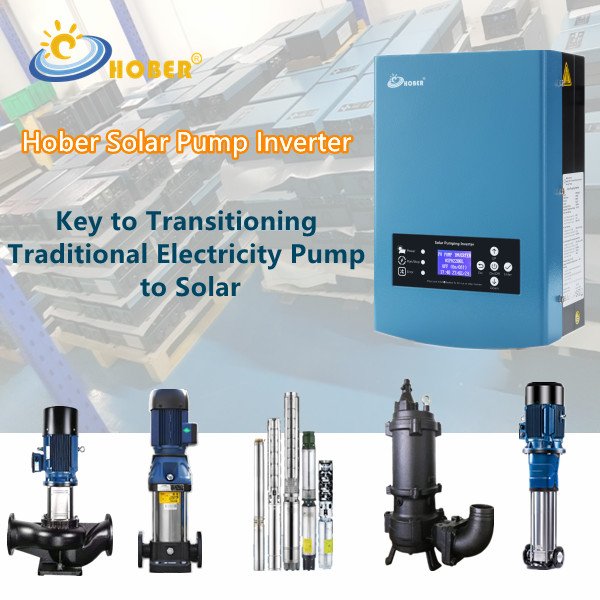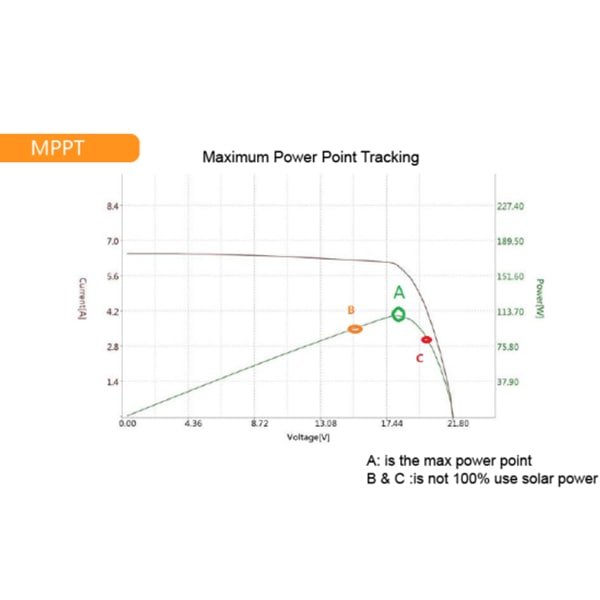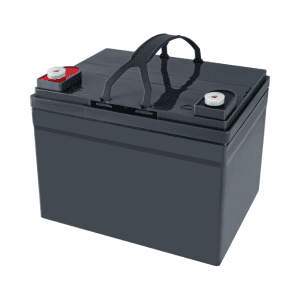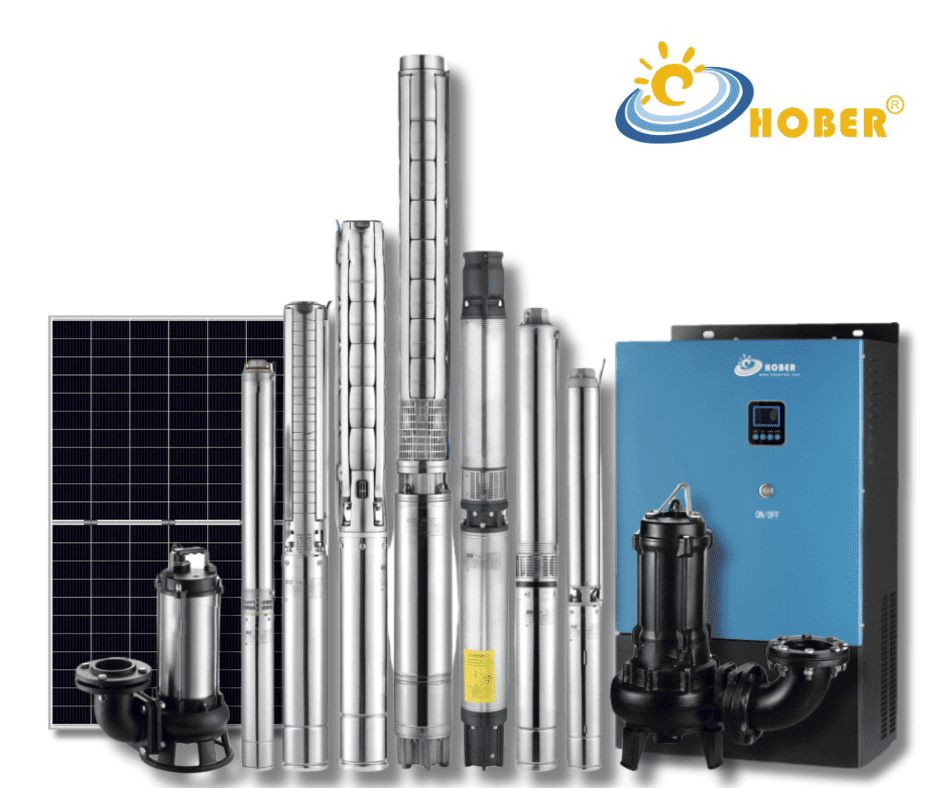在现代农业领域,能源效率至关重要。太阳能农业泵提供了一种节约能源、降低运营成本和提高可持续性的创新方法。通过利用太阳能,这些泵为农业企业的抽水需求提供了一种经济高效且可靠的解决方案。在本文中,我们将探讨太阳能泵的工作原理、其关键组件以及它们如何节能。
太阳能泵通过高效的太阳能转换节省能源
太阳能农业泵利用太阳能电池板将阳光直接转化为电能,从而节省能源,无需电网电力或柴油泵。通过采用 MPPT(最大功率点跟踪)等技术,系统可根据不同的阳光条件进行调整,从而优化能源使用,确保实现最高效率。此外,太阳能泵系统还配备逆变器和跟踪 MPPT 以提高性能,自动切换到最佳运行模式,以节省能源并降低成本。

太阳能泵的主要优势是什么?
太阳能泵为农业企业提供了许多优势。首先,这些系统 节能 因为他们完全依赖于 太阳能减少对昂贵的电网电力或柴油的依赖。通过使用 太阳能电池板,系统生成 直流电源,然后转换成 交流电源 由 太阳的 水泵逆变器. 这是一种既经济又环保的清洁可再生能源。
此外,太阳能泵所需的维护很少,因为与传统泵相比,太阳能泵的活动部件更少。 最大功率跟踪 技术通过调整太阳的强度来确保系统始终以最佳容量运行。无论是 单相 或者 三相交流电 系统,太阳能泵可以扩展以满足特定需求,使其成为小型和大型运营的绝佳选择。

太阳能泵系统如何工作?
一个 太阳能水泵系统 通过转换 太阳能 转化为可用电能。这个过程开始于 太阳能电池板 捕获阳光并将其转化为 直流电源。该直流电被发送到 水泵逆变器,将其转换为 交流电源 适用于泵电机。然后泵从井、河或其他水源抽水。
串联太阳能水泵逆变器 为大型系统提供灵活性和可扩展性。它们允许设置多个面板以满足更大规模农业运营的能源需求。此外,太阳能泵还具有 软启动 该功能可逐步提高电机速度,保护系统免受突然电涌的影响并延长泵的使用寿命。

MPPT 在太阳能泵中的作用是什么?
的作用 MPPT(最大功率点跟踪) 太阳能泵的潜力不容小觑。这项技术可确保系统始终以最大能量输出运行,无论阳光如何变化。太阳能电池板会根据一天中的时间和天气条件产生不同的电量。 最大功率跟踪 不断调整电压和电流以保持系统高效运行,确保泵即使在阳光波动的情况下也能最佳运行。
本质上, 跟踪 MPPT 优化能源收集,确保太阳能泵全天以最佳性能运行。通过最大限度地利用从太阳收集的能量,有助于整体节能。

单相或三相交流电:哪种最适合太阳能泵?
在选择太阳能泵系统时,一个关键的决定是是否选择 单相交流电 或者 三相交流电 力量。 单相交流 系统通常更经济实惠,安装更简单,非常适合抽水需求适中的小型农场。另一方面, 三相交流电 系统效率更高,更适合能源需求较高的大规模作业。
太阳能泵可以轻松适应这两种选择,具体取决于农业企业的电力需求。使用 三相交流电 对于更大规模的操作,可确保系统能够更有效地处理高负载,减少能源浪费并优化性能。
太阳能泵如何节省能源成本?
通过利用 太阳能,农业企业可以大幅减少对 电网电力 或柴油泵。安装太阳能泵系统的初始成本可能较高,但长期节省的成本却很可观。太阳能泵无需燃料成本,维护成本极低,是一种可靠且经济高效的解决方案。
跟踪 MPPT 和 太阳能电池板 共同努力,确保全天高效利用能源。随着系统适应不断变化的阳光,它会自动切换到最有效的模式,防止能源浪费。该系统减少了对昂贵的 交流电源 并帮助农业企业节省电费。
太阳能泵如何处理干运行条件?
现代太阳能泵的一个重要特点是能够检测 试运行 当泵水量不足时,就会发生这种情况。当泵检测到没有水可用时,它会自动关闭以防止损坏电机。这种自动切换功能确保系统不仅节能,而且耐用且使用寿命长。
此外,在干燥条件下高效运行的能力可降低能源消耗。通过避免不必要的运行,太阳能泵可确保仅在需要时使用电力,从而防止浪费并节省能源。
太阳能水泵有哪些缺点?
虽然太阳能泵有很多好处,但也有一些缺点。 初始安装成本 太阳能系统的温度可能很高,而且系统的性能与阳光的可用性直接相关。在阴天或雨天,水泵的效率可能会降低,并且无法在夜间运行。
此外,太阳能泵的安装和维护需要仔细规划。虽然从长远来看可以节省大量成本,但前期投资和维护组件(如 太阳能电池板 和 泵逆变器 需要考虑。

概括
对于希望节省能源成本、减少环境影响和提高效率的农业企业来说,太阳能农业泵是一项极好的投资。凭借以下关键技术 最大功率跟踪, 泵逆变器, 和 太阳能电池板,这些系统可确保最佳性能、更低的能耗和长期可持续性。通过投资太阳能泵送系统,企业不仅可以节省电费,还可以为农业更环保、更节能的未来做出贡献。

